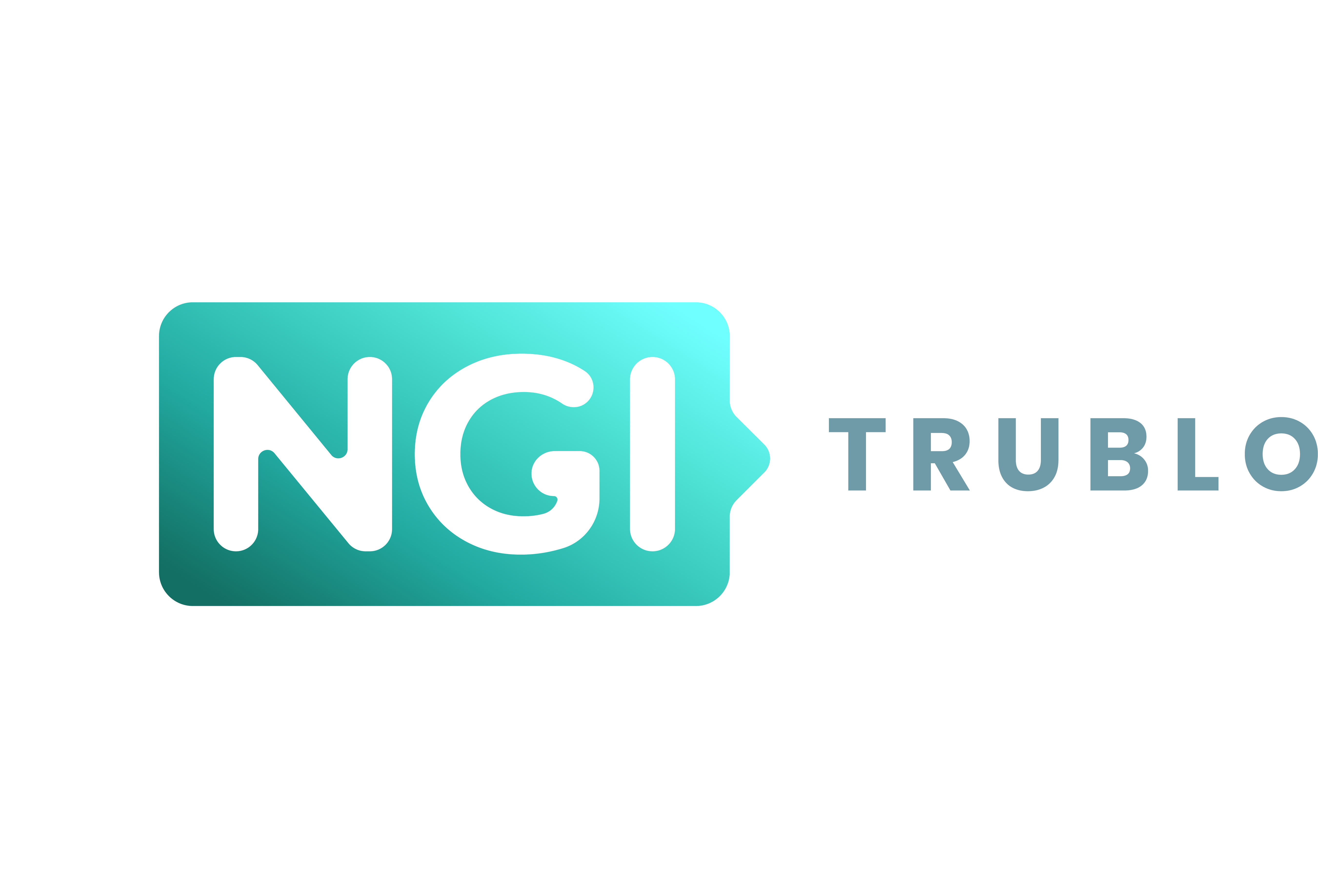
Newsletter #27
Newsletter #27: Web3 and decentralisation • Messaging service Signal plays with fire • PayPal explores stable coin • Facebook rolls out new privacy center • Tarantino sells “Pulp Fiction” scenes as NFTs • Neufund shutting down • Blockchain venture funding 2021, per country
TruBlo NEWSLETTER • Trustable content on future blockchains
January 12, 2022
TruBlo Newsletter #27
Your quick update from the intersection of trust, content and blockchain
Estimated reading time: 9 minutes, 23 seconds. Contains 1879 words.
- Share: Share this newsletter with colleagues or friends
- Social: Follow us on Twitter for direct interactions or questions
PROJECT UPDATE
TruBlo funded project: ENARXIS – Better management for EV charging stations.
Problem: ENARXIS develops a blockchain reputation system for better use of charging stations for electric vehicles. The current situation is that a charging point might be reserved, but the driver does not show up. Another issue is when a car is fully loaded but not moved away, blocking the station.
Solution: Users showing up in time and leaving when loaded will be rewarded with a good reputation. The company behind the project is EV Loader, and the team is already operating in the field of EV charging points management in Greece.
TruBlo Open Call 3 will start on January 27, 2022.
Blockchain Weather, Week 2 2022 (January 10-17)
Here is a new element in our newsletter. In each edition, we aim to summarise the current sentiment for crypto, blockchain and web3 similar to a weather report:
Past week: A heavy storm passing through, resulting in falling value for many currencies.
Currently cold temperature, with unclear outlook whether situation will brighten up. There might even be additional storms coming through, but that is unclear.
Please tell us what you think.
Updates this week:
TRUST
How decentralised will web3 be?
Here is an exciting and thoughtful comment published by Moxie Marlinspike, the CEO of messaging service Signal, who just stepped down. He talks about the assumption that web3 will be decentralised, and the question he asks is: Is this really what we need? He created an NFT (non-fungible token), primarily to test the current status. At the end of the post, Marlinspike comes to two interesting conclusions:
- We should accept the premise that people will not run their own servers by designing systems that can distribute trust without having to distribute infrastructure. This means architecture that anticipates and accepts the inevitable outcome of relatively centralized client/server relationships, but uses cryptography (rather than infrastructure) to distribute trust. One of the surprising things to me about web3, despite being built on “crypto,” is how little cryptography seems to be involved!
- We should try to reduce the burden of building software. At this point, software projects require an enormous amount of human effort. Even relatively simple apps require a group of people to sit in front of a computer for eight hours a day, every day, forever. This wasn’t always the case, and there was a time when 50 people working on a software project wasn’t considered a “small team.” As long as software requires such concerted energy and so much highly specialized human focus, I think it will have the tendency to serve the interests of the people sitting in that room every day rather than what we may consider our broader goals. I think changing our relationship to technology will probably require making software easier to create, but in my lifetime I’ve seen the opposite come to pass. Unfortunately, I think distributed systems have a tendency to exacerbate this trend by making things more complicated and more difficult, not less complicated and less difficult.
The quotes are a bit long, sorry. But shortening them would have resulted in a loss of nuance:
Signal is “playing with fire”: Adding traceless money transfers could invite regulators to stop end-to-end encryption.
Another story is that Signal currently explores the addition of anonymous cryptocurrency payments. Such payments would be almost untraceable, like cash. Casey Newton from Platformer sees this as a risky move, and such an option could be an excuse to regulators worldwide to call for end-to-end encryption. “How Signal is playing with fire” is the headline. Simply adding such services could do more harm than good.
PayPal works on a stablecoin for digital payments
PayPal confirmed that the company is working on a PayPal stablecoin, backed by US-Dollar. The company said it would be working with regulators ahead of a launch. On a recent podcast, a company representative said that the company has “not yet seen a stablecoin out there that is purpose-built for payments.”
The goal for their coin would be to enable payments at scale while maintaining security. One hope for the future would be that fees for money transfers go down.
Cardano Forrest project says it planted one million trees.
The Cardano Foundation is a non-profit that oversees the Cardano network development. One project of the organisation is the Cardano Forrest, a reforestation effort. The project says it has reached a milestone of one million trees. For the plantation, the foundation works with Veritree, which uses blockchain to enable verifiable tracking of each plant. Veritree offers a platform for businesses and planting organisations, providing the technology, trusted storage and data updates.
Such projects are positive. But the central success part is when the planted trees are still there in fifty years. Whether blockchain contributes to such long-term development and tracing such projects, the digital record won’t change if no one looks after the trees.
Meta rolls out new privacy centre, currently only available for US users
Setting privacy rules on Facebook is possible, but not simple. Now, Meta announced a new, updated privacy centre that makes privacy and sharing settings easier to use. The offering is currently only available for users in the US but will be rolled out worldwide in the coming months.
How Meta/Facebook wanted secrecy for data centre project in the Netherlands
BuzzFeed reports that people in the small Dutch town of Zeewolde feel deceived. The town council negotiated for two years about a planned, hyper-scale data centre. Only after the project, code-named “Tulip”, got the green light did the council members, and the citizens realise they were dealing with is Meta/Facebook.
“Facebook’s demand for secrecy around its data centre in the Netherlands is the latest example of Big Tech’s aggressive but covert strategy to squeeze concessions from local governments. The veil of secrecy minimizes public scrutiny and backlash, often until it is too late.”
EU Parliament gets sanctioned by EU data protection officer
The European Data Protection Supervisor sanctioned the European Parliament over a breach of data protection rules. The EU Parliament had launched a COVID-19 test booking website using a 3rd party provider. The set-up was not in compliance with the privacy protection rules. The episode is a reminder that the EU takes data protection seriously.
CONTENT
Livepeer gets funding for decentralised video streaming based on an open video infrastructure.
In the future, Amazon Video and Netflix might have to compete not with one but potentially multiple, decentralised video streaming services using blockchain. One such contender is Livepeer, an Ethereum-based streaming network, which recently received 28 Million US-Dollars in venture funding. Livepeer aims to develop an “open video infrastructure”, meaning content creators could offer their videos independently from a central hub or authority. There is a 10 minute illustrated primer on the homepage that helps to understand the goals of Livepeer better. The company will use the money to develop “smart video” services based on Artificial Intelligence and so-called “peer-to-peer” content delivery.
Deleted scenes from “Pulp Fiction” movie to be auctioned off as NFTs
Director Quentin Tarantino plans to auction off “Pulp Fiction” NFTs, despite being sued by film company Miramax over the rights for these scenes. A unique feature of these NFTs is that they are “secret”, meaning only the buyers will be able to view them. For this purpose, the filmmaker will use a platform by Secret Network, which received $11.5 million in funding in May 2021.
European Media Freedom Act: Commission launches public consultation
The consultation intends to collect views on the most important issues affecting the functioning of the internal media market, including different types of interference in media, as well as economic trends. It covers three main areas pertaining to media markets, the first one focuses on transparency and independence (e.g. scrutiny of media market transactions, transparency of media ownership and audience measurement), the second on conditions for their healthy functioning (e.g. exposure of the public to a plurality of views, media innovation in the EU market) and the third one on fair allocation of state resources (e.g. independence of public service media, transparency and fair distribution of state advertising).
The consultation is open until March 21 2022. Input can be provided via a webpage at the “Have your say portal”
NFT Net Price Floor: Overview of NFT price development
“NFT Net Price Floor” is a helpful website to monitor the prices of NFTs. Example: The currency, a project by the artist Damien Hirst.
“The Currency is the first NFT collection by the renowned Damien Hirst. Reimagining how NFTs are used.” The offering is a collection of 10,000 NFTs that correspond to 10,000 unique physical artworks stored in a secure vault in the UK.”
Open Sea and Web 3
The marketplace is in talks to raise $300 million, based on a $13 billion valuation. Currently, Open Sea is criticised because of a recent incident: The platform had frozen certain assets which were stolen. But critics argue that such an action should not be possible for a decentralised platform NFTs. Ben Thompson of Stratechery wrote a more extended analysis. Follow the link.
BLOCKCHAIN
Legal uncertainty: Why Berlin-based Neufund shuts down
The idea was intriguing: Let everyone invest in any company globally in a trustable way. Despite claiming that this model worked very well using Ethereum, the company is shutting down. In an article on “Coindesk”, Zoe Adamovicz, one of the company’s co-founders, says: We were successful. But we failed to get a green light from regulators.
Over the course of Neufund’s life, we transacted about €20 million ($22.6 million) through our equity platform, facilitated entirely through the public Ethereum blockchain. We registered 11,000 investors from 123 countries – an international and diverse crowd with tickets starting from as low as €100 ($113).
Despite engaging with regulators for years, we didn’t manage to get out of the limbo of legal uncertainty.
Blockchain Venture Funding per Country
In total, a staggering $23.1 billion in venture funding has been raised by blockchain companies in 2021. But where were these companies located? Are there any particular countries where blockchain companies are raising more than others?
A former partner of Andreesen Horowitz plans a $900 million crypto investment fund.
Katie Haun, a partner in the venture capital firm Andreesen Horowitz, plans a pair of substantial first funds for her firm. $900 million would be the first time a venture firm starts with such an amount. On the other side, the investments in many startups have reached $50 or 100 million in past years.
Quick updates:
- Not ready for the game: Manchester City stops working with a blockchain firm after three months. LINK
- The associated press will start an NFT marketplace for photos, working with Xooa. Proceeds will be used to fund AP journalism. LINK
- South African police initiate investigation in Africrypt bitcoin scam LINK
Thank You for reading. Please forward this newsletter to colleagues: Click here to subscribe.
Do you have feedback or suggestions? Contact us

